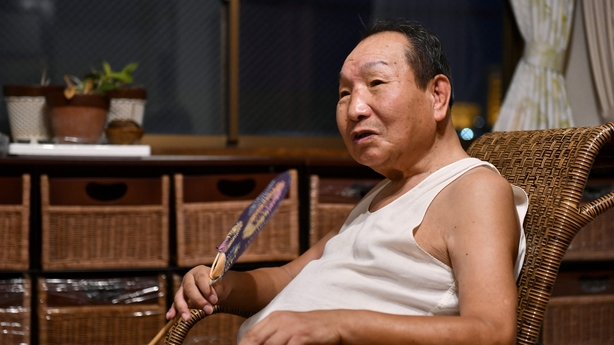The world’s longest-serving death row prisoner has been acquitted by a Japanese court, more than half a century after his 1968 murder conviction.
The Shizuoka District Court ruled that 88-year-old Iwao Hakamada was not guilty in a retrial obtained by the former boxer and his supporters a decade ago.
“The court finds the defendant innocent,” judge Koshi Kunii said.
Mr Hakamada’s health is delicate and he was not present in court, but his 91-year-old sister Hideko, who often speaks for him, bowed deeply to the judge several times.
Until he was freed in 2014 pending retrial, Mr Hakamada had been on death row for 46 years after being convicted of killing his boss, the man’s wife and their two teenage children.
But over the years, questions arose over fabricated evidence and coerced confessions, sparking scrutiny of Japan’s justice system, which critics say holds suspects “hostage”.
Hundreds of people had queued in the morning at the Shizuoka District Court, trying to secure a seat for the verdict in the murder saga that has gripped the nation.
“For so long, we have fought a battle that has felt endless,” his sister, Hideko, had told reporters in July. “But this time, I believe it will be settled.”
Japan is the only major industrialised democracy other than the United States to retain capital punishment, a policy that has broad public support.
Mr Hakamada is the fifth death row inmate granted a retrial in Japan’s post-war history.
All four previous cases also resulted in exoneration.
After decades of detention, mostly in solitary confinement, Mr Hakamada sometimes seems like he “lives in a world of fantasy”, according to his lead lawyer Hideyo Ogawa.
Speaking to AFP in 2018, Mr Hakamada underlined his ongoing battle to obtain an acquittal, saying he felt he was “fighting a bout every day”.
“Once you think you can’t win, there is no path to victory,” he said.
Outside the court, Mr Hakamada’s supporters held flags and banners calling for a not-guilty verdict.

Although the Supreme Court upheld Mr Hakamada’s death sentence in 1980, his supporters fought for decades to have the case reopened.
A turning point came in 2014 when a retrial was granted on the grounds that prosecutors could have planted evidence, and Mr Hakamada was released from prison.
Legal wrangling, including a pushback by prosecutors, meant it took until last year for the retrial to begin.
Mr Hakamada initially denied having robbed and murdered the victims, but confessed following what he later described as a brutal police interrogation that included beatings.
Central to the trial was a set of blood-stained clothes found in a tank of miso – fermented soybean paste – a year after the 1966 murders, used as evidence to incriminate Mr Hakamada.
The defence accused investigators of a set-up, as the red stains on the clothes were too bright, but prosecutors said their own experiments showed the colour was credible.
In Japan, death row prisoners are notified of their hanging only a few hours in advance.
As of December, 107 prisoners were waiting for their death sentences to be carried out.
Mr Hakamada’s case is “just one of countless examples of Japan’s so-called ‘hostage justice’ system”, Teppei Kasai, Asia programme officer for Human Rights Watch, said.
“Suspects are forced to confess through long and arbitrary periods of detention” and there is often “intimidation during interrogation,” he said.
